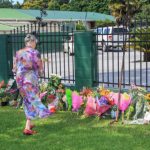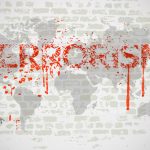Former Journalist Charged with Terrorism Offences

A former journalist has been arrested and charged with planning a terrorist attack in Bundaberg, Queensland.
James Waugh worked for local newspapers in the Canberra region and, in 2018, had access to the Federal Press Gallery at Parliament House.
It’s been reported that Mr Waugh had entered a three-year good behaviour bond in May this year, when the ACT Magistrate’s Court suspended a sentence of two years and six months’ imprisonment over a series of threats he made online.
Search and seizure
Police searched Mr Waugh’s property earlier this month, after he had allegedly threatened a member of the public.
They report seizing electronic devices and a notebook, alleging that the devices contain documents indicating a desire to undertake acts of violent extremism.
Police also allege he sought to undertake firearms training in preparation for a terrorism attack.
Investigation and arrest
Mr Waugh was arrested after a joint Counter Terrorism Team operation between the Queensland Police Service, Australian Federal Police and ASIO.
An AFP spokesperson says the arrest was made “to prevent a terrorist attack in Australia and to protect the community”.
Planning or preparing for an act of terrorism
Mr Waugh has been charged under section 101.6 of the Criminal Code Act 1995, which covers acts done in preparation for, or planning for, terrorist attacks, and carries a maximum penalty of life imprisonment.
The section states:
(1) A person commits an offence if the person does any act in preparation for, or planning, a terrorist act:
Penalty: Imprisonment for life.
(2) A person commits an offence under subsection (1) even if:
(a) a terrorist attack does not occur; or
(b) the person’s act is not done in preparation for, or planning, a specific terrorist act; or
(c) the person’s act is done in preparation for, or planning, more than one terrorist act.
(3) Section 15.4 (extended geographical jurisdiction – category D) applies to an offence against subsection (1).
What is a terrorist act?
A terrorist act is defined in section 100.1, which states.
(1) Terrorist act means an action or threat of action where:
(a) the action falls within subsection (2) and does not fall within subsection (3); and
(b) the action is done or the threat is made with the intention of advancing a political, religious or ideological cause; and
(c) the action is done or the threat is made with the intention of:
(i) coercing, or influencing by intimidation, the government of the Commonwealth or a State, Territory or foreign country, or of part of a State, Territory or foreign country; or
(ii) intimidating the public or a section of the public.
(2) Action falls within this subsection if it:
(a) causes serious harm that is physical harm to a person; or
(b) causes serious damage to property; or
(c) causes a person’s death; or
(d) endangers a person’s life, other than the life of the person taking the action; or
(e) creates a serious risk to the health or safety of the public or a
section of the public; or
(f) seriously interferes with, seriously disrupts, or destroys, an electronic system including, but not limited to:
(i) an information system; or
(ii) a telecommunications system; or
(iii) a financial system; or
(iv) a system used for the delivery of essential government services; or
(v) a system used for, or by, an essential public utility; or
(vi) a system used for, or by, a transport system.
(3) Action falls within this subsection if it:
(a) is advocacy, protest, dissent or industrial action; and
(b) is not intended:
(i) to cause serious harm that is physical harm to a person;
Or
(ii) to cause a person’s death; or
(iii) to endanger the life of a person, other than the person taking the action; or
(iv) to create a serious risk to the health or safety of the public or a section of the public.
Anti-terrorism legislation
Since 2001 Australia has passed more than 50 pieces of legislation in relation to counter terrorism.
The Australian Council for Civil Liberties and Human Rights organisations have been very critical of these laws, and the impact they have on ordinary Australians.
There have been significant erosions to our freedom of movement, right to privacy, freedom of association, freedom of assembly and freedom of speech.
But there are also concerns that the offences contained within the laws are very broad, which presents challenges for legal representatives of the accused. However, these concerns have been rejected by both the Australian Law Reform Commission (ALRC) and the Parliamentary Joint Committee on Intelligence and Security (PJCIS).
Mr Waugh’s family is steadfastly maintaining his innocence. His case is due back in court in the coming weeks.







